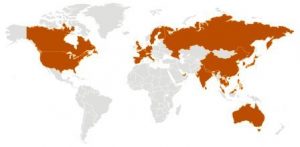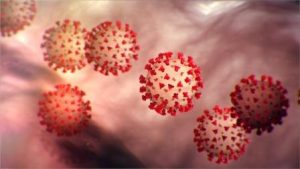 Leading health experts from around the world have been meeting at the World Health Organization’s Geneva headquarters to assess the current level of knowledge about the new COVID-19 disease, identify gaps and work together to accelerate and fund priority research needed to help stop this outbreak and prepare for any future outbreaks.
Leading health experts from around the world have been meeting at the World Health Organization’s Geneva headquarters to assess the current level of knowledge about the new COVID-19 disease, identify gaps and work together to accelerate and fund priority research needed to help stop this outbreak and prepare for any future outbreaks.
The 2-day forum was convened in line with the WHO R&D Blueprint – a strategy for developing drugs and vaccines before epidemics, and accelerating research and development while they are occurring.
“This outbreak is a test of solidarity — political, financial and scientific. We need to come together to fight a common enemy that does not respect borders, ensure that we have the resources necessary to bring this outbreak to an end and bring our best science to the forefront to find shared answers to shared problems. Research is an integral part of the outbreak response,” said WHO Director-General Dr Tedros Adhanom Ghebreyesus. “I appreciate the positive response of the research community to join us at short notice and come up with concrete plans and commitment to work together.”
The meeting, hosted in collaboration with GloPID-R (the Global Research Collaboration for Infectious Disease Preparedness) brought together major research funders and over 300 scientists and researchers from a large variety of disciplines. They discussed all aspects of the outbreak and ways to control it including:
- the natural history of the virus, its transmission and diagnosis;
- animal and environmental research on the origin of the virus, including management measures at the human-animal interface;
- epidemiological studies;
- clinical characterization and management of disease caused by the virus;
- infection prevention and control, including best ways to protect health care workers;
- research and development for candidate therapeutics and vaccines;
ethical considerations for research; - and integration of social sciences into the outbreak response.
“This meeting allowed us to identify the urgent priorities for research. As a group of funders we will continue to mobilize, coordinate and align our funding to enable the research needed to tackle this crisis and stop the outbreak, in partnership with WHO,” said Professor Yazdan Yazdanpanah, chair of GloPID-R. “Equitable access – making sure we share data and reach those most in need, in particular those in lower and middle-income countries, is fundamental to this work which must be guided by ethical considerations at all times.”
During the meeting, the more than 300 scientists and researchers participating both in person and virtually agreed on a set of global research priorities. They also outlined mechanisms for continuing scientific interactions and collaborations beyond the meeting which will be coordinated and facilitated by WHO. They worked with research funders to determine how necessary resources can be mobilized so that critical research can start immediately.
The deliberations will form the basis of a research and innovation roadmap charting all the research needed and this will be used by researchers and funders to accelerate the research response.
 CDC today confirmed another infection with Coronavirus Disease (COVID-19) in the United States. The patient is among a group of people under a federal quarantine order at JBSA-Lackland in Texas because of their recent return to the U.S. on a State Department-chartered flight that arrived on February 7, 2020.
CDC today confirmed another infection with Coronavirus Disease (COVID-19) in the United States. The patient is among a group of people under a federal quarantine order at JBSA-Lackland in Texas because of their recent return to the U.S. on a State Department-chartered flight that arrived on February 7, 2020.
As the disease continues to spread, according to Johns Hopkins data, there are now upward of 60,300 confirmed cases with nearly 1,400 deaths tied to the new virus.
All people who lived or travelled in Hubei Province, China, are considered at high risk of having been exposed to this virus and are subject to a temporary 14-day quarantine upon entry into the United States. This is the first person under quarantine at JBSA-Lackland who had symptoms and tested positive for COVID-19. The individual is currently isolated and receiving medical care at a designated hospital nearby.
This brings the total number of COVID-19 cases in the United States to 15. There will likely be additional cases in the coming days and weeks, including among other people recently returned from Wuhan. While 195 people were discharged from quarantine on Tuesday, more than 600 people who returned on chartered flights from Wuhan remain under federal quarantine and are being closely monitored to contain the spread of the virus.
For the latest information on the outbreak, visit CDC’s Novel Coronavirus 2019 website.
The Louisville Metro Department of Public Health Wellness is working with area physicians, hospitals and government agencies to guard against and prevent the potential spread of the 2019 novel coronavirus. So far, there have been no confirmed cases or suspected cases in Louisville.
“Communicable disease monitoring, outbreak response planning, and working with community partners to respond to community health threats is something that’s core to our daily operations,” said Dr. Sarah Moyer, Chief Health Strategist and director of the Department of Public Health and Wellness. “Our team, led by our medical director, Dr. Lori Caloia, is working closely with our partners at the Kentucky Department for Public Health and the Centers for Disease Control (CDC) to stay up to date on the novel coronavirus. We’ve been sharing guidance to healthcare providers, local colleges and universities and local businesses with international operations.”
The Louisville Metro Department of Public Health and Wellness maintains detailed plans on how to respond to outbreaks of infectious diseases, such as the 2018 hepatitis A outbreak, as well as other community public health emergencies.
On Wednesday the Kentucky Department for Public Health reported that there are no confirmed or suspected 2019 novel coronavirus in the state. There are presently six confirmed cases of the 2019 novel coronavirus in the United States. All six cases are in isolation hospitals. They are in Arizona, California (2), Illinois(2) and Washington. These individuals had recently been in Wuhan, China or were close household contacts of those who had travelled to Wuhan. Yesterday the CDC reported the first case of person-to-person transmission in the United States between an Illinois woman who had travelled to Wuhan and her husband who had not.
The virus has now spread from China to 18 other countries and the World Health Organization has declared the 2019 novel coronavirus a global health emergency.
While the CDC considers this is a serious public health threat, based on current information, CDC reports that the immediate health risk from 2019 novel coronavirus to the general American public is low at this time. “Unless you have recently travelled to China or have been in close contact with someone who has, you are not at risk from the 2019 novel coronavirus,” said Dr. Moyer.
The 2019 novel coronavirus is a respiratory illness spread when an infected person coughs or sneezes, like the way that flu and other respiratory viruses spread. Like other respiratory viruses, 2019 novel coronavirus symptoms include fever, cough and difficulty breathing. If you have recently been to China and develop these symptoms, you should contact your health care provider immediately. Call ahead to alert them so measures can be taken to avoid spreading the virus at the health care facility. There are many strains of coronavirus, causing mild to severe illness. You may have been diagnosed in the past with a coronavirus. The 2019 novel coronavirus is a new unique strain.
There is currently no vaccine to prevent 2019 novel coronavirus infection. You can protect yourself by taking everyday preventive actions including:
- Wash your hands often with soap and warm water for at least 20 seconds. Use an alcohol-based hand sanitizer that contains at least 60% alcohol if soap and water are not available.
- Avoid touching your eyes, nose, and mouth with unwashed hands.
- Avoid close contact with people who are sick.
- Stay home when you are sick.
- Cover your cough or sneeze with a tissue, then throw the tissue in the trash.
- Clean and disinfect frequently touched objects and surfaces.
 Weather
Weather Traffic
Traffic @LouisvilleDispatch
@LouisvilleDispatch @LouisvilleDisp
@LouisvilleDisp Subscribe
Subscribe